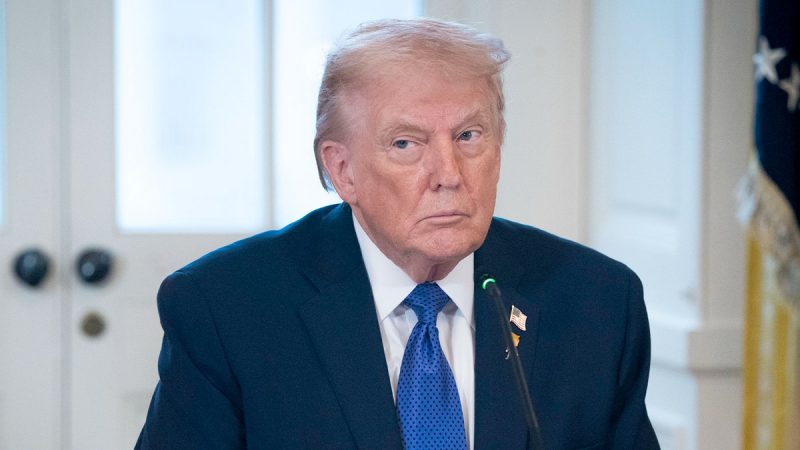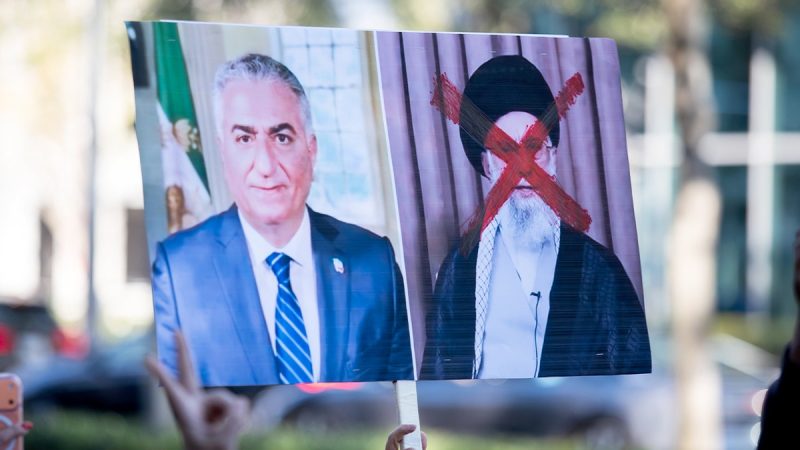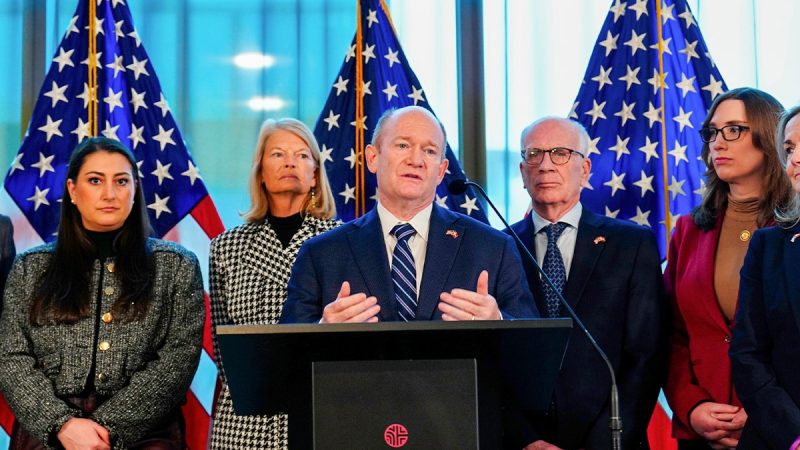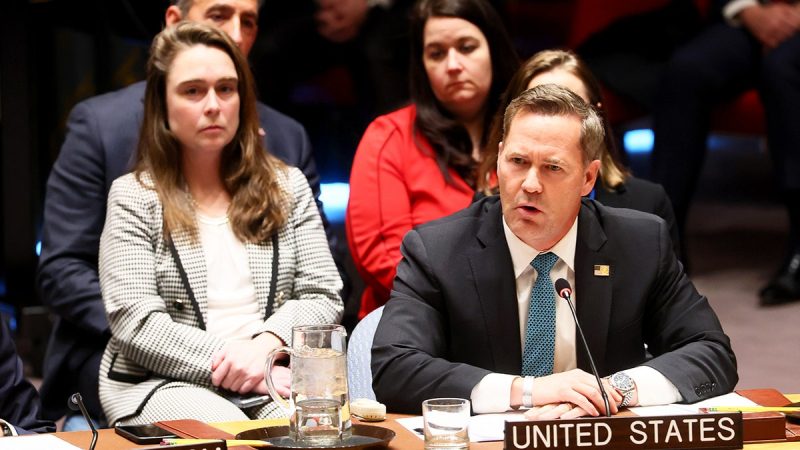President Donald Trump is expected to head to Davos, Switzerland, for the World Economic Forum this week — on the heels of threatening tariffs against NATO members as he seeks to acquire Greenland, a Danish territory.
The Davos World Economic Forum is an annual summit bringing world leaders together to discuss global issues related to politics, business and society.
Other world leaders who are expected to attend include Ukrainian President Volodymyr Zelenskyy, Federal Chancellor of Germany Friedrich Merz and President of the European Commission Ursula von der Leyen.
Trump is expected to deliver a special address Wednesday, per the World Economic Forum’s program. But the White House did not immediately respond to a request for comment from Fox News Digital regarding Trump’s schedule in Switzerland.
Trump previously attended the World Economic Forum in Davos, Switzerland, twice during his first term, according to the State Department’s records.
Trump is poised to enter the forum in the middle of heightened tensions between the U.S. and European allies. After a group of NATO members sent troops to Greenland amid Trump’s latest efforts to acquire the island, Trump announced Saturday that those countries would be subjected to a 10% tariff on all goods starting Feb. 1.
That number would climb to 25% in June, until a deal is reached for Trump to secure Greenland, according to Trump.
While the Danish territory claims it is seeking independence from Copenhagen, Denmark, and doesn’t want to join the U.S., Trump has regularly expressed a desire to acquire Greenland for the U.S. as Russian and Chinese presence grows in the Arctic since his first administration.
Trump has revived his rhetoric toward Greenland in recent weeks, claiming that the region is critical for national security purposes, including the creation of a Golden Dome project, a defense shield initiative for the U.S. similar to the one Israel has safeguarding itself.
Likewise, Trump said in text messages to Norway’s Prime Minister Jonas Gahr Støre on Sunday that Norway released Monday that he’s not inclined to only think of peace, after the Norwegian Nobel Committee did not award him with the 2025 Nobel Peace Prize. Instead, the committee awarded the prize to Venezuelan opposition leader, Maria Corina Machado.
‘Considering your Country decided not to give me the Nobel Peace Prize for having stopped 8 Wars PLUS, I no longer feel an obligation to think purely of Peace, although it will always be predominant, but can now think about what is good and proper for the United States of America,’ Trump said in the text messages.
‘Denmark cannot protect that land from Russia or China, and why do they have a ‘right of ownership’ anyway? There are no written documents, it’s only that a boat landed there hundreds of years ago, but we had boats landing there, also,’ Trump said.
Meanwhile, Denmark, Norway, Sweden, France, Germany, the United Kingdom, the Netherlands and Finland said in a joint statement Sunday that the tariff threats ‘undermine transatlantic relations and risk a dangerous downward spiral.’
Likewise, NATO Secretary-General Mark Rutte said Sunday that he and Trump spoke over the weekend, and would see each other in Switzerland.
‘We will continue working on this, and I look forward to seeing him in Davos later this week,’ Rutte said in a post on social media Sunday.
Meanwhile, Trump has refused to back down from his aspirations to acquire Greenland following his tariff threat, and issued another stern warning to Denmark.
‘NATO has been telling Denmark, for 20 years, that ‘you have to get the Russian threat away from Greenland.’ Unfortunately, Denmark has been unable to do anything about it. Now it is time, and it will be done!!!’ Trump said in a social media post late Sunday.
Greenland has a trove of natural resources, including oil and natural gas. Meanwhile, both Russia and China have bolstered their presence in the region in recent years.
The Associated Press contributed to this report.








![In an exclusive interview with Fox News Digital, U.S. ambassador to NATO Matthew Whitaker pushed back against growing European backlash over Washington’s focus on Greenland after France announced new military exercises with Denmark, saying Arctic security is a core American defense interest and that Europe ‘has a tendency to overreact.’
Asked whether the dispute reflects American pressure or European inaction, Whitaker said, ‘This is ultimately an issue between the United States, Denmark and Greenland.’
Whitaker said Greenland’s importance has been clear for years as the ice melts, it reshapes the Arctic and opens new routes. ‘The security of the high north, which I’ve talked about a lot before this ever happened, is the most important issue,’ he said. ‘As the ice thaws and as routes open up in the Arctic, Arctic security, and therefore the security of Greenland, which is the northern flank of the continental United States, is crucial.’
He stressed that Greenland’s location makes it central to U.S. defense planning. ‘If you think about Greenland as part of the access to the naval assets, that monitoring and awareness and fortification of that part of the Western Hemisphere is crucial for the long-term security of the United States,’ Whitaker said.
Whitaker said recent diplomacy shows the issue can be addressed without escalation. ‘I know that a very successful meeting happened between the Danes and Greenland and Vice President Vance and Secretary of State Rubio, so I think it’s going to be constructive,’ he said.
Still, he cautioned European allies against inflaming tensions. ‘Europe sometimes has a tendency to overreact anytime that an issue is put out on the table,’ Whitaker said. ‘This is one of those things where cooler heads need to prevail.’
<strong>US COMMANDER SAYS RUSSIA AND CHINA’S ARCTIC PATROLS ARE ‘NOT FOR PEACEFUL PURPOSES’</strong>
<strong>NATO, deterrence and the ‘Reagan spirit’</strong>
Speaking from the Ronald Reagan Presidential Library, Whitaker used Reagan’s ‘peace through strength’ doctrine as justification for pushing NATO allies to spend more and move faster.
‘The most important thing that we’re doing at NATO is, one, the United States is strong. Nobody denies that. We have demonstrated through Midnight Hammer, through what we did in Venezuela and elsewhere, that the United States is capable and can project power. We want all of our allies inside of NATO to be equally as strong, and they’re not at this point in time,’ he said.
He added, ‘Some of them have certainly become more capable, and that’s why you can’t just paint with a broad brush when it comes to all of our NATO allies. But there are some that are not.’
‘Europe and the EU are going to have to untie their hands from behind their back,’ he continued. ‘They’re going to have to deregulate, they are going to have to find more capital and economic growth, because at the end of the day, that’s what’s going to allow them to live up to the promises they’ve made to increase their defense spending and therefore their defense capabilities.’
He said, ‘One of the things that I’m talking about constantly with our friends downtown in the EU,’ Whitaker added, ‘is that they have to get their economy going, and there are proven, tried-and-true ways to do it.’
Whitaker said his top priority is ensuring NATO allies follow through on the major defense commitments agreed to last year in The Hague.
‘This is number one on my list right now,’ he said, ‘making sure that the political commitments we made in The Hague turn into real military capabilities at NATO.’
He said proximity to Russia has shaped how seriously countries take the threat.
‘You look at the Baltic countries like Latvia, Lithuania and Estonia, and you look at the Nordic countries… they’re very aware of the threats that Russia [poses],’ Whitaker said, citing Russia’s 2014 annexation of Crimea and its 2022 invasion of Ukraine.
Poland, he added, stands out. ‘Poland is clear-eyed,’ Whitaker said. ‘They’re gonna spend over 5% on core defense in the coming year or two.’
Others, he said, are still lagging. ‘I keep a dashboard, a one-page dashboard on my desk that is updated regularly,’ Whitaker said. ‘It’s too soon to tell.’ ‘It has to be on capabilities,’ he said. ‘It has to make them stronger, ready to fight tonight.’
‘President Trump announced a $1.5 trillion defense budget,’ Whitaker said. ‘We’ve demonstrated our capabilities that nobody else can match right now.’
‘I’m here at the Reagan Library, and it reminds me, Ronald Reagan really was able to put those policies in place to spur growth,’ Whitaker said. ‘President Trump certainly has followed that same tradition, to unleash the American entrepreneur, unleash American innovation, and get out of the way, get the regulations out of the way so that American companies can grow and prosper.’
As NATO moves forward, Whitaker said pressure on allies will remain. ‘We’re asking our European and Canadian allies to do more,’ he said. ‘So far, so good.’
This post appeared first on FOX NEWS NATO ambassador says Europe ‘has a tendency to overreact’ over Greenland dispute](https://theinvestmentgodfather.com/wp-content/uploads/2026/01/nato-whitaker-800x450-1.jpg)

